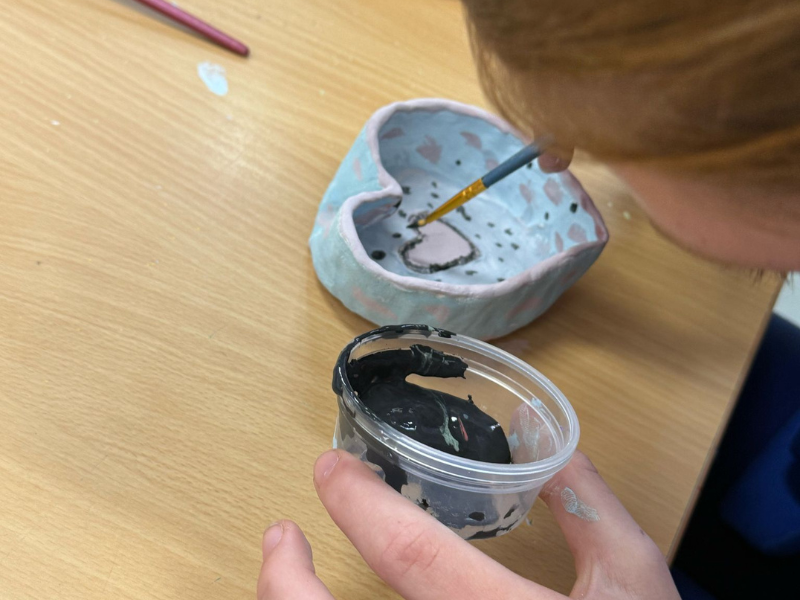Clay in the Classroom: Creative Workshops for Melbourne Kids

In Melbourne’s fast-paced education environment, slowing things down with clay can do wonders. Pottery gives children a rare opportunity to create, explore, and learn — all while having fun.
Creative play helps children express emotions, develop confidence, and build essential life skills. Pottery stands out by simultaneously engaging the senses of touch, movement, and imagination. Whether shaping an animal or pressing textures into clay, kids learn through doing, not just observing. Hands-on, open-ended learning encourages exploration without the need for words.
Why pottery? The benefits for kids
Introducing pottery into early learning environments offers a wealth of developmental benefits. Children not only explore a new artistic medium but also gain foundational life skills that support their growth across many domains.
- Fine motor development improves as fingers strengthen through pinching, rolling, and shaping.
- Creative and emotional expression becomes easier for those who find verbal communication challenging.
- Sensory and therapeutic play calms nervous systems and helps children stay grounded
- Building patience, focus, and pride as projects evolve from soft slabs to sturdy creations
- Encourages teamwork and independent thinking through both shared tools and individual projects
Pottery also fosters resilience. When a piece doesn’t turn out as expected, children learn to adapt, reshape, or start again—skills that mirror important life lessons. This is one of many reasons educators are increasingly turning to pottery workshops for Melbourne schools and childcare as part of their wellbeing and creative programming.
What to expect from Melbourne workshops
Hands-on clay sessions are designed to meet the developmental needs of children in different age brackets. These workshops adapt to classroom rhythms, educator goals, and young learners’ curiosity.
- Preschoolers: Enjoy play-based, short sessions that focus on sensory interaction with squishy, mouldable clay
- Primary school students: Engage in guided, age-appropriate projects — think mugs, animal figures, and seasonal decorations
- Safety first: All materials are non-toxic, washable, and suitable for little hands
- Convenient delivery: Workshops are delivered on-site across various Melbourne suburbs
- Custom themes: Sessions can be tailored to align with nature studies, calendar events like Mother’s Day, or classroom topics
Educators can also request links to specific outcomes from the Early Years Learning Framework or Victorian Curriculum. Sessions can target emotional well-being, communication development, or learning about the natural world through hands-on crafting.
What happens during a typical workshop?
A pottery session with kids is as unpredictable as it is rewarding. But what exactly unfolds once the clay hits the table? Here’s a typical scene:
- Initial excitement: Children rush to the tables, curious about the incredible, squishy texture of the clay
- Hands-on discovery: Some start rolling coils, others press shapes into tiles using found objects
- Creative spark: A quiet child begins shaping a snail, while a group next door collaborates on a clay forest
- Pride and joy: Laughter fills the room as creations take shape, with children eager to show their teachers and mates
Honest feedback from classrooms:
Child:
“Look, it’s a dragon boat!”
“I made this for my nan!”
“Can I take it home today?”
Educator:
“The calm that settled in was beautiful.”
“Even the shy kids opened up.”
“It tied into our nature theme perfectly.”
Many educators describe these sessions as the highlight of the term. The unique combination of sensory input, personal expression, and non-verbal communication helps every child find a place to shine regardless of background or learning style. These outcomes also reflect the broader importance of exploring creativity through early learning activities that let children direct the process and create meaning through experience.
How to book a workshop
Booking a clay workshop for children is simple and flexible.
- Choose from single sessions or term-long programs
- Confirm age group and student numbers
- Enjoy a no-fuss experience — setup, materials, and cleanup all included
- Bookings are available across Melbourne, including outer suburbs
Workshops suit all early childhood settings, primary schools, and vacation care services. Sessions are conducted in familiar environments, reducing anxiety and maximising engagement. This flexible setup is another example of why pottery makes learning tactile and fun, allowing children to feel safe while engaging fully with the creative process.
How does creative play deepen learning?
Clay modelling isn’t just fun — it’s foundational. When kids shape, squish, and sculpt, they learn in ways far beyond the surface. Here’s what makes creative play so powerful:
- It engages all senses — boosting memory and making learning stick
- It invites curiosity — there’s no “right” outcome, just exploration
- It builds confidence, especially in kids who struggle with words
- It strengthens brain pathways by connecting physical actions with ideas
Research backs this up. Young children retain more when lessons involve movement and touch. That’s why educators who prioritise sensory-rich, open-ended tasks see stronger outcomes. The approach behind fostering creativity through play taps into this, encouraging problem-solving, collaboration, and resilience from the ground up.
Why Clay Belongs in Every Classroom
Few activities combine learning, mindfulness, and pure joy like working with clay. The process allows children to engage deeply with materials, make independent choices, and feel pride in their creations. It’s messy, meaningful, and memorable.
Educators aiming to enrich their learning programs might consider bringing a bit of tactile magic into the classroom. The benefits stretch far beyond the activity, encouraging emotional growth, physical skill-building, and social interaction in one go.
Take a moment to see how Diana Ceramic supports young creators. Then, you can find out more about creative education options or make a booking enquiry.